
Aug . 18, 2025 02:20 Back to list
VAE Powder: Superior RDP Polymer for Construction
Understanding Redispersible Polymer Powder (RDP) in Modern Construction
In the dynamic landscape of modern construction and building materials, the demand for high-performance additives has surged, driving innovation and efficiency across various applications. Among these crucial additives, vae powder, specifically known as Redispersible Polymer Powder (RDP), stands out as a foundational component for enhancing the properties of cement-based and gypsum-based mixtures. This highly versatile binder, derived from vinyl acetate-ethylene (VAE) emulsions, plays a pivotal role in improving workability, adhesion, flexibility, and water retention of mortars, grouts, and renders. The global market for RDP has experienced robust growth, fueled by increasing urbanization, infrastructure development, and a continuous shift towards sustainable and durable construction practices. Analysts project a consistent upward trajectory, with market size expected to reach significant figures by the mid-2020s, driven by its indispensability in modern dry-mix formulations. The versatility of RDP allows it to significantly upgrade conventional building materials, offering superior performance characteristics that are essential for long-lasting and resilient structures.
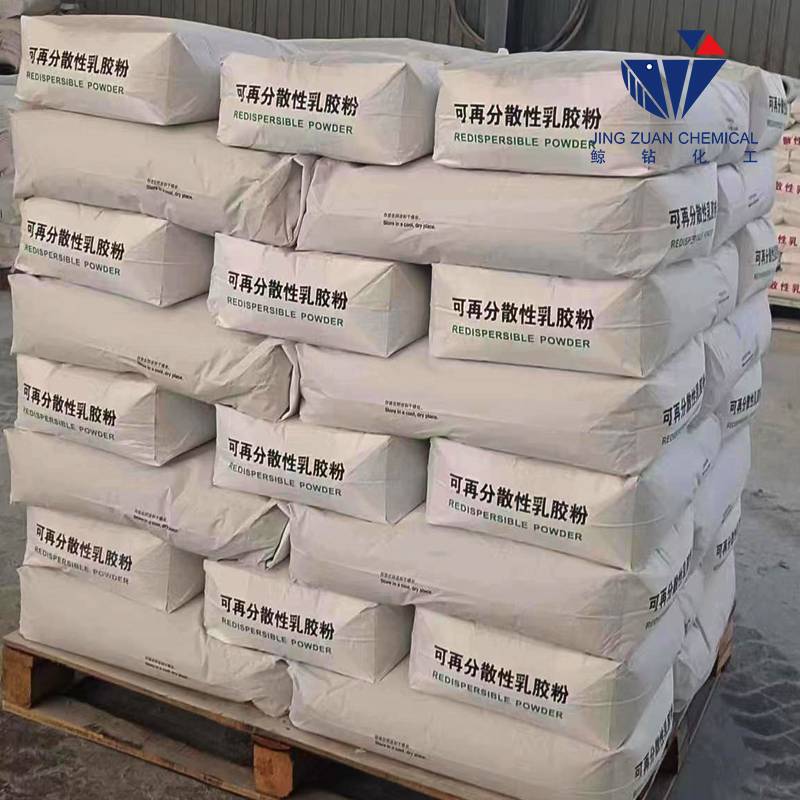
The burgeoning construction sector, particularly in emerging economies, represents a significant growth driver for the vae powder market. As environmental regulations become stricter and the emphasis on energy-efficient buildings grows, the superior insulation and durability properties conferred by RDP-modified mortars are becoming increasingly attractive. The ability of rdp polymer to improve freeze-thaw resistance, reduce cracking, and enhance overall durability directly translates into longer service life for buildings and infrastructure, thereby reducing maintenance costs and material waste over time. This aligns perfectly with the principles of sustainable construction, where material longevity and performance are paramount. Furthermore, the rising adoption of prefabricated construction methods and dry-mix mortars further propels the demand for high-quality redispersible powder, as these methods rely heavily on consistent and reliable material performance that RDP provides. The intrinsic characteristics of RDP, such as its film-forming capability after redispersion, enable the formation of a flexible polymer network within the hardened matrix, which is crucial for accommodating structural movements and thermal stresses without compromising integrity.
Technical Specifications and Performance Parameters of RDP
Understanding the technical parameters of vae powder is crucial for its optimal application in various construction materials. As a highly engineered additive, RDP's performance is characterized by several key metrics that dictate its suitability for specific formulations. The glass transition temperature (Tg) of the polymer is a fundamental property, influencing the flexibility and elasticity of the final mortar. A lower Tg typically indicates higher flexibility, vital for tile adhesives and crack-bridging renders. Particle size distribution, usually in the micrometre range, affects workability and dispersion in the dry mix. Ash content indicates the purity of the powder, while bulk density influences packaging and storage considerations. Furthermore, residual monomer content is meticulously controlled to ensure environmental safety and product stability, adhering to stringent international standards like ISO. The pH value of the redispersed solution can impact the setting time and chemical stability of the final product, necessitating careful formulation adjustments by manufacturers.
| Parameter | Unit | Typical Value Range | Significance in Application |
|---|---|---|---|
| Solid Content | % | ≥98.0 | Indicates polymer purity and effective binding agent. |
| Ash Content (at 1000°C) | % | 8-14 | Measure of inorganic fillers; lower is generally better for pure polymer. |
| Bulk Density | g/L | 450-650 | Affects packaging, storage, and mixing characteristics. |
| Film Forming Temperature (MFFT) | °C | 0-10 | Minimum temperature for continuous film formation; critical for low-temp applications. |
| Particle Size | µm | 80-120 (Avg.) | Influences dispersion, workability, and surface finish. |
| pH Value (10% Solution) | - | 7.0-9.0 | Affects compatibility with other additives and mortar stability. |
| Adhesive Strength | MPa | >1.0 (various substrates) | Key performance indicator for bonding to substrates. |
These specifications are not merely numbers; they represent the precise engineering behind each batch of redispersible powder, ensuring consistent quality and performance. For instance, the MFFT (Minimum Film Forming Temperature) is a critical parameter for applications in colder climates, as it guarantees that the polymer will form a continuous, cohesive film even at low ambient temperatures, thus ensuring optimal bonding and flexibility. The rigorous testing protocols, often in accordance with ISO 9001 quality management systems, ensure that each batch meets stringent requirements for consistency and reliability. Producers like JZ Chemical invest heavily in R&D and quality control to fine-tune these parameters, offering a range of RDP products tailored to specific application needs, whether for high-flexibility tile adhesives or durable self-leveling compounds. The ability to precisely control these technical attributes is what differentiates high-quality RDP from generic alternatives, directly impacting the final performance and longevity of the construction material.
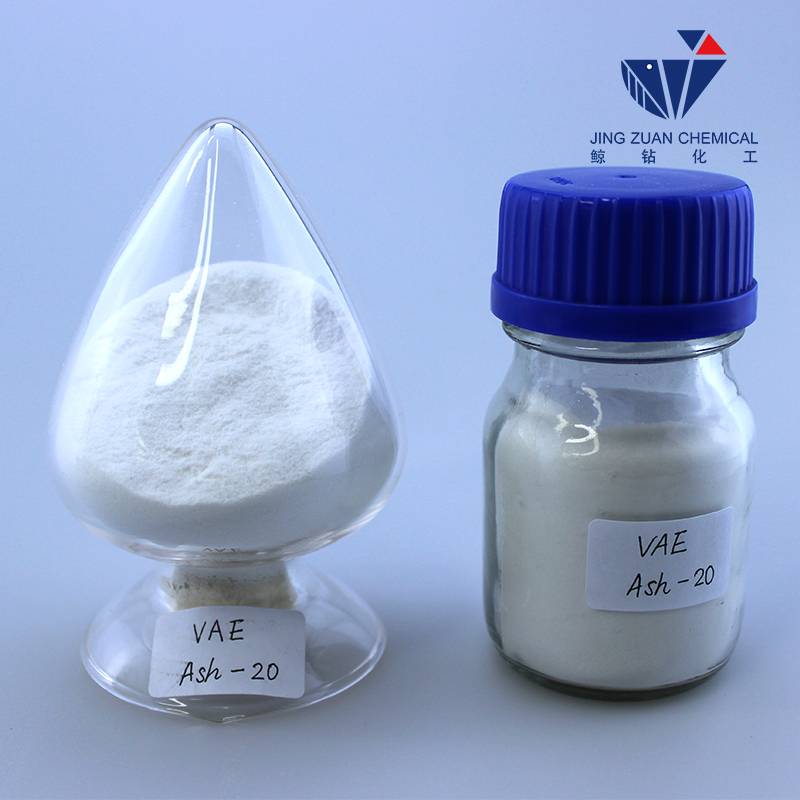
The Manufacturing Process of VAE Powder (RDP)
The production of high-quality vae powder is a sophisticated multi-stage process that begins with the emulsion polymerization of vinyl acetate and ethylene monomers, along with other specialized co-monomers and protective colloids. This initial phase involves meticulous control of reaction conditions, including temperature, pressure, and monomer feed rates, to achieve a stable and consistent polymer emulsion. The polymer emulsion, a milky liquid, then undergoes a critical transformation into a free-flowing powder through a process known as spray drying. In this stage, the liquid emulsion is atomized into fine droplets and introduced into a hot drying chamber. The water rapidly evaporates, leaving behind solid polymer particles encapsulated by protective colloids, which prevent the particles from coalescing. This encapsulation is crucial for the powder's ability to "redisperse" effectively when mixed with water at the job site, reforming the original emulsion and allowing it to bind various aggregates.
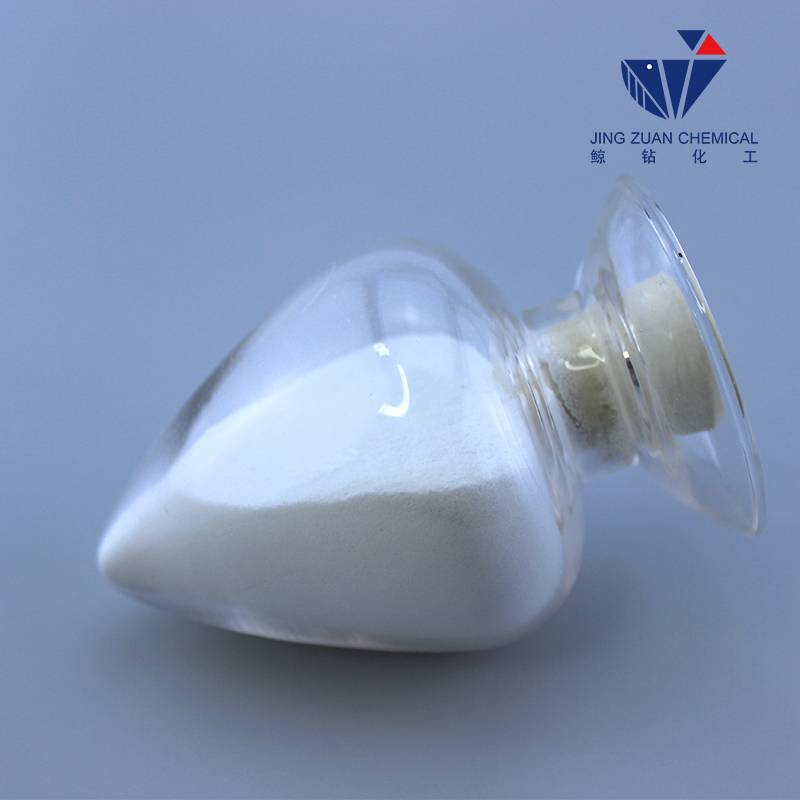
Following the spray-drying process, the resulting redispersible powder undergoes further processing steps such as agglomeration and packaging. Agglomeration ensures uniform particle size and improved flowability, which are vital for easy blending with other dry-mix components. Strict quality control measures are implemented at every stage of the manufacturing process, from raw material inspection to final product testing. This includes rigorous checks for chemical composition, moisture content, particle size, redispersibility, and actual performance in standard mortar formulations. Companies adhere to international standards such as ISO 9001 for quality management and ISO 14001 for environmental management, ensuring not only product excellence but also sustainable production practices. The typical service life of mortars modified with high-quality rdp polymer is significantly extended, contributing to the durability of structures in diverse environments, from residential buildings to large-scale infrastructure projects. The precise control over the manufacturing process ensures that the RDP produced by leading manufacturers offers consistent performance, which is indispensable for applications in critical industries such as petrochemical plants, metallurgical facilities, and advanced water supply and drainage systems, where corrosion resistance and structural integrity are paramount.
Versatile Application Scenarios and Technical Advantages
The versatility of vae powder makes it an indispensable additive across a broad spectrum of construction applications, significantly enhancing the performance and durability of various dry-mix mortars. In tile adhesives, RDP dramatically improves bond strength to a variety of substrates, including challenging non-porous tiles and large formats, reducing slippage and increasing open time. For external thermal insulation composite systems (ETICS/EIFS), it enhances the adhesion of renders to insulation boards, improves crack resistance, and contributes to the system's overall flexibility and weather resistance, directly leading to better energy efficiency in buildings. In self-leveling compounds, RDP ensures smooth, crack-free surfaces with excellent flow properties and abrasion resistance, crucial for industrial floors and underlays. Furthermore, in repair mortars and grouts, it provides improved cohesion, reduced shrinkage, and superior bond to existing concrete or masonry, extending the service life of repaired structures.
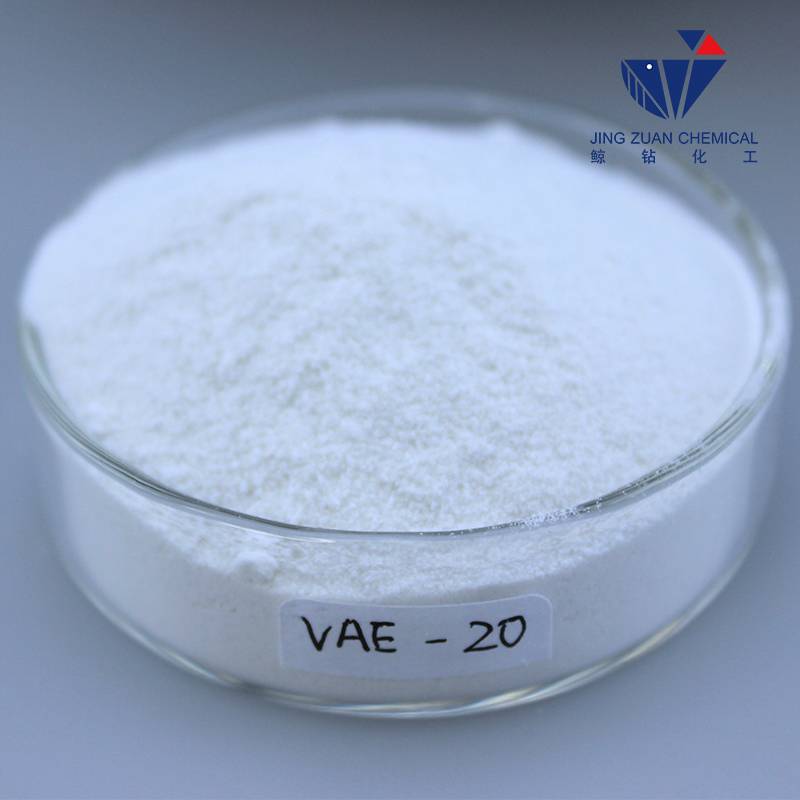
The technical advantages conferred by rdp polymer are multi-faceted and directly address common challenges in construction. Its ability to form a flexible polymer film within the cementitious matrix significantly improves the flexural strength and deformability of the mortar, allowing it to withstand thermal expansion/contraction cycles and structural movements without cracking. This enhanced flexibility also contributes to improved impact resistance. RDP also increases water retention, extending the open time and adjustability of mortars, particularly beneficial in hot climates. This superior water retention ensures more complete cement hydration, leading to higher final strengths. Moreover, the hydrophobic properties of certain RDP grades can significantly improve the water repellency of mortars, providing crucial anti-corrosion benefits for steel reinforcement within concrete and masonry, as well as enhancing energy saving through reduced moisture ingress. For applications in the petrochemical and metallurgy sectors, where harsh chemical environments are common, RDP-modified mortars offer superior chemical resistance and durability. The improved workability and pumpability of modified mortars also lead to significant labor savings and increased application speed on large-scale projects, further highlighting the economic and technical benefits of incorporating this advanced additive.
Manufacturer Comparison and Tailored Solutions
When selecting a supplier for vae powder, B2B decision-makers must consider several critical factors beyond just price. Key aspects include product consistency, technical support, research and development capabilities, and the ability to offer customized solutions. Leading manufacturers like JZ Chemical distinguish themselves through rigorous quality control processes, ensuring that each batch of redispersible powder meets exacting specifications. This consistency is vital for formulators who rely on predictable performance in their dry-mix products. A strong technical support team can provide invaluable assistance in troubleshooting formulation challenges, optimizing product performance, and developing new applications. Furthermore, a manufacturer's investment in R&D signifies a commitment to innovation, bringing new grades of RDP to market that address evolving industry needs, such as enhanced sustainability profiles or specialized performance characteristics for niche applications.
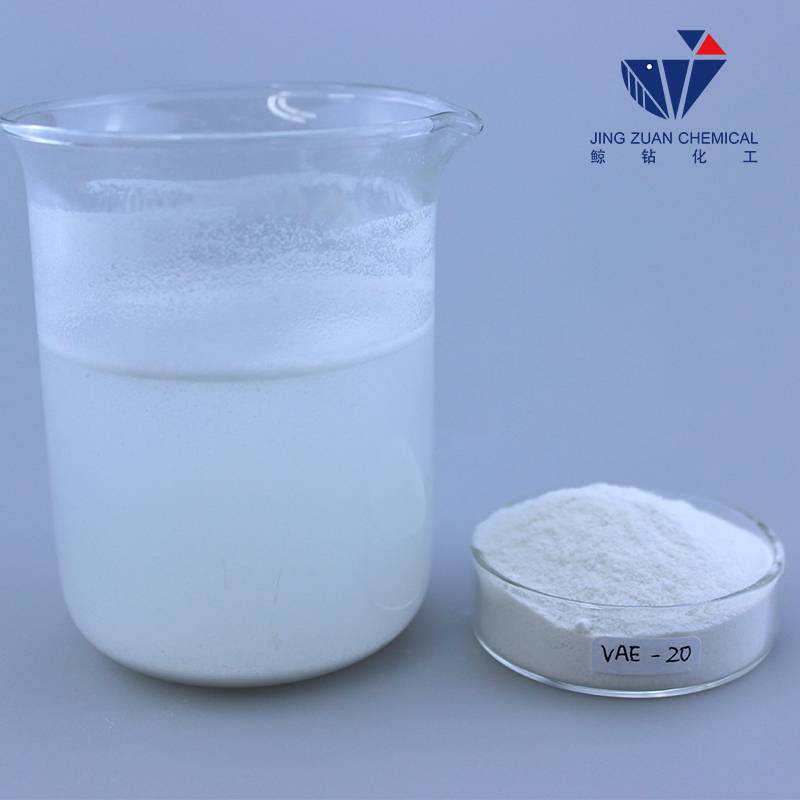
Customized solutions are a hallmark of a truly customer-centric RDP supplier. Recognizing that no two applications are identical, reputable manufacturers work closely with clients to develop tailor-made rdp polymer grades that precisely meet specific performance requirements, climate conditions, or regulatory demands. This collaborative approach involves detailed technical discussions, laboratory trials, and often on-site support to ensure seamless integration into existing production lines. For example, a client requiring exceptional flexibility for a facade render in an earthquake-prone region might need a different RDP profile than one developing a high-strength industrial flooring compound. JZ Chemical's extensive experience, spanning years in the chemical industry, coupled with adherence to ISO-certified manufacturing standards, positions us as a reliable partner capable of delivering consistent quality and innovative solutions. Our state-of-the-art testing facilities and experienced chemists ensure that every customized vae powder formulation is rigorously tested to meet or exceed expectations, providing our clients with a distinct competitive advantage in their respective markets.
Real-World Application Cases and Client Successes
The tangible benefits of incorporating high-quality vae powder are best illustrated through successful real-world application cases. In a recent large-scale residential project in a high-humidity coastal region, a building material manufacturer utilized JZ Chemical's RDP in their tile adhesives to achieve superior water resistance and adhesion for external cladding. The project faced challenges with potential moisture ingress and extreme temperature fluctuations, which typically lead to tile debonding. However, the enhanced flexibility and bonding strength provided by the redispersible powder ensured the longevity and integrity of the facade, demonstrating its effectiveness in challenging environments. The client reported a significant reduction in tile failure rates, leading to considerable cost savings in rework and enhanced reputation for durability. This case underscores how the inherent properties of RDP contribute directly to the resilience of structures.
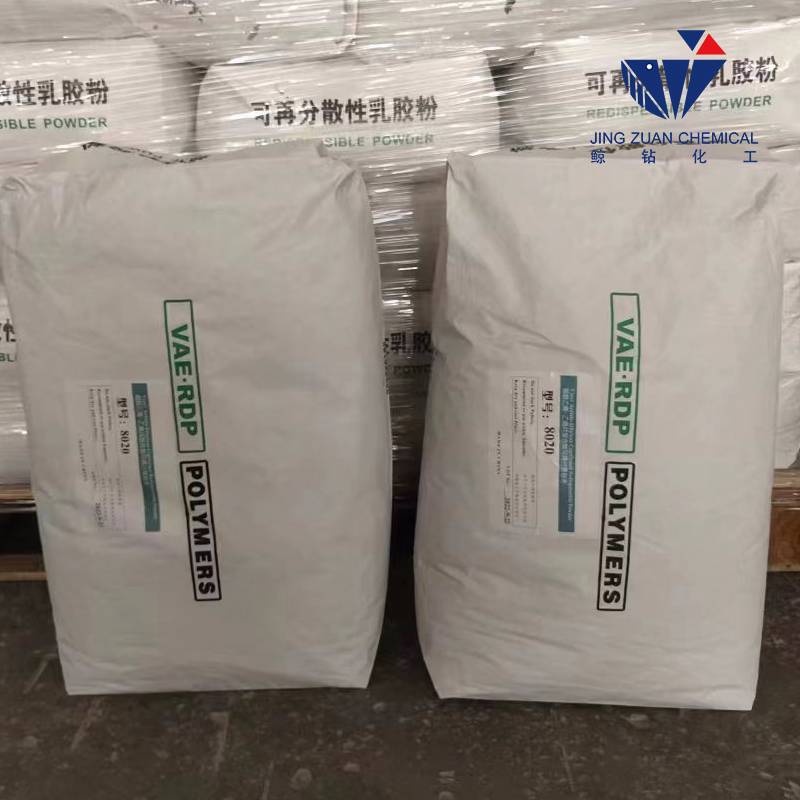
Another notable application involved a commercial flooring company requiring a robust self-leveling compound for a high-traffic retail space. The main concern was achieving a perfectly smooth, abrasion-resistant surface that could withstand heavy foot traffic and display shelving without cracking or degradation. By integrating a specialized grade of rdp polymer from JZ Chemical, the compound exhibited exceptional flow characteristics, superior compressive strength, and remarkable resistance to abrasion. This resulted in a flawless, durable floor that met the stringent demands of the retail environment, exceeding the client's expectations for both aesthetics and long-term performance. Customer feedback highlighted the ease of application and the outstanding finish, directly attributing the success to the advanced properties of the vae powder. These examples showcase not just the product's technical capabilities but also the collaborative approach between supplier and client, leading to tangible business advantages and successful project outcomes across diverse industrial and commercial sectors.
Trustworthiness: FAQs, Delivery, Warranty, and Support
Building trust with B2B clients extends beyond product quality to encompass comprehensive support and transparent business practices. JZ Chemical is committed to providing exceptional service throughout the entire customer journey. Our typical delivery cycle for standard vae powder orders is efficiently managed, often ranging from 7-14 business days depending on location and order volume, with expedited options available for urgent requirements. We ensure robust packaging and logistics to maintain product integrity during transit, regardless of destination. Regarding quality assurance, all our RDP products come with a comprehensive warranty against manufacturing defects, underscoring our confidence in their consistency and performance. Our products are rigorously tested and certified to meet international standards, including ISO and relevant industry benchmarks. This commitment is supported by a dedicated customer support team available to assist with technical inquiries, order tracking, and any post-purchase concerns.
Frequently Asked Questions (FAQs) about RDP:
Q1: What is the shelf life of Redispersible Polymer Powder?
A1: Typically, redispersible powder has a shelf life of 12-18 months when stored in original, unopened packaging in a cool, dry place away from direct sunlight and moisture. Proper storage conditions are crucial to prevent caking and maintain redispersibility.
Q2: How does RDP improve mortar performance?
A2: RDP polymer enhances mortar performance by increasing adhesion, flexibility, water retention, cohesion, and resistance to impact and abrasion. It forms a flexible film within the mortar matrix, improving its overall durability and workability.
Q3: Can RDP be used with other additives?
A3: Yes, vae powder is often formulated alongside other additives like cellulose ethers (for thickening and water retention), defoamers, and superplasticizers to achieve specific performance profiles in dry-mix mortars. Our technical team can provide guidance on optimal additive compatibility.
Our customer support extends beyond just answering questions. We offer extensive technical support, including formulation guidance, laboratory testing services for new applications, and on-site assistance for large-scale projects. This holistic approach ensures that our clients not only receive high-quality vae powder but also the necessary expertise to maximize its potential in their products. Our long-standing relationships with key industry players and our global distribution network further solidify our reputation as a trusted and authoritative supplier in the construction chemical market. We are dedicated to continuous improvement in both product offerings and customer service, fostering long-term partnerships built on reliability and mutual success.
References
- Ohama, Y. (1995). Handbook of Polymer-Modified Concrete and Mortars. Noyes Publications.
- Knopf, R., & Schoknecht, U. (2018). Redispersible Polymer Powders: Key Additives for Modern Dry Mix Mortars. Bauverlag.
- Wang, L., & Li, C. (2014). Effects of redispersible polymer powder on the properties of cement-based materials: A review. Construction and Building Materials, 61, 396-407.
- Schäfer, J., Hojer, H. (2006). Polymer Modified Mortars. In: Ullmann's Encyclopedia of Industrial Chemistry. Wiley-VCH Verlag GmbH & Co. KGaA.
-
Unlocking the Benefits of HPMC Products: A Gateway to Versatile Applications
NewsAug.07,2025
-
Unleashing the Potential of HPMC Ashland: A Comprehensive Look
NewsAug.07,2025
-
Tile Bonding Cellulose: The Key to Superior Adhesion and Durability
NewsAug.07,2025
-
Hydroxypropyl Methylcellulose Powder: The Versatile Component in Modern Pharmaceuticals
NewsAug.07,2025
-
Hydroxyethyl Cellulose: The Versatile Solution for Various Industries
NewsAug.07,2025
-
Hydroxyethyl Cellulose (HEC): The Versatile Polymer for Various Applications
NewsAug.07,2025







